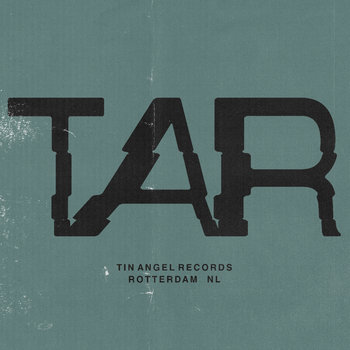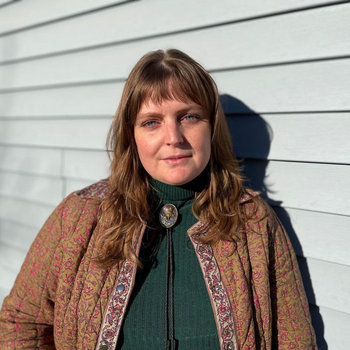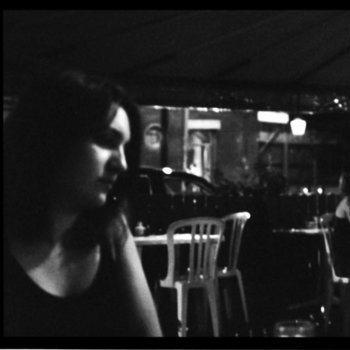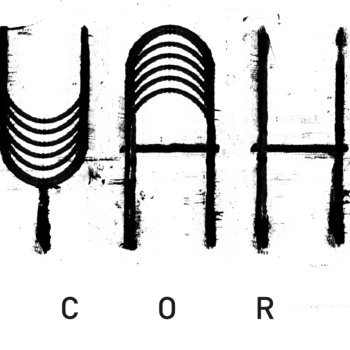“The Female Bob Dylan” Podcast Reframes the Narrative (and Shares Their Taste) (original) (raw)
BIG UPS “The Female Bob Dylan” Podcast Reframes the Narrative (and Shares Their Taste) By Mariana Timony · October 24, 2024 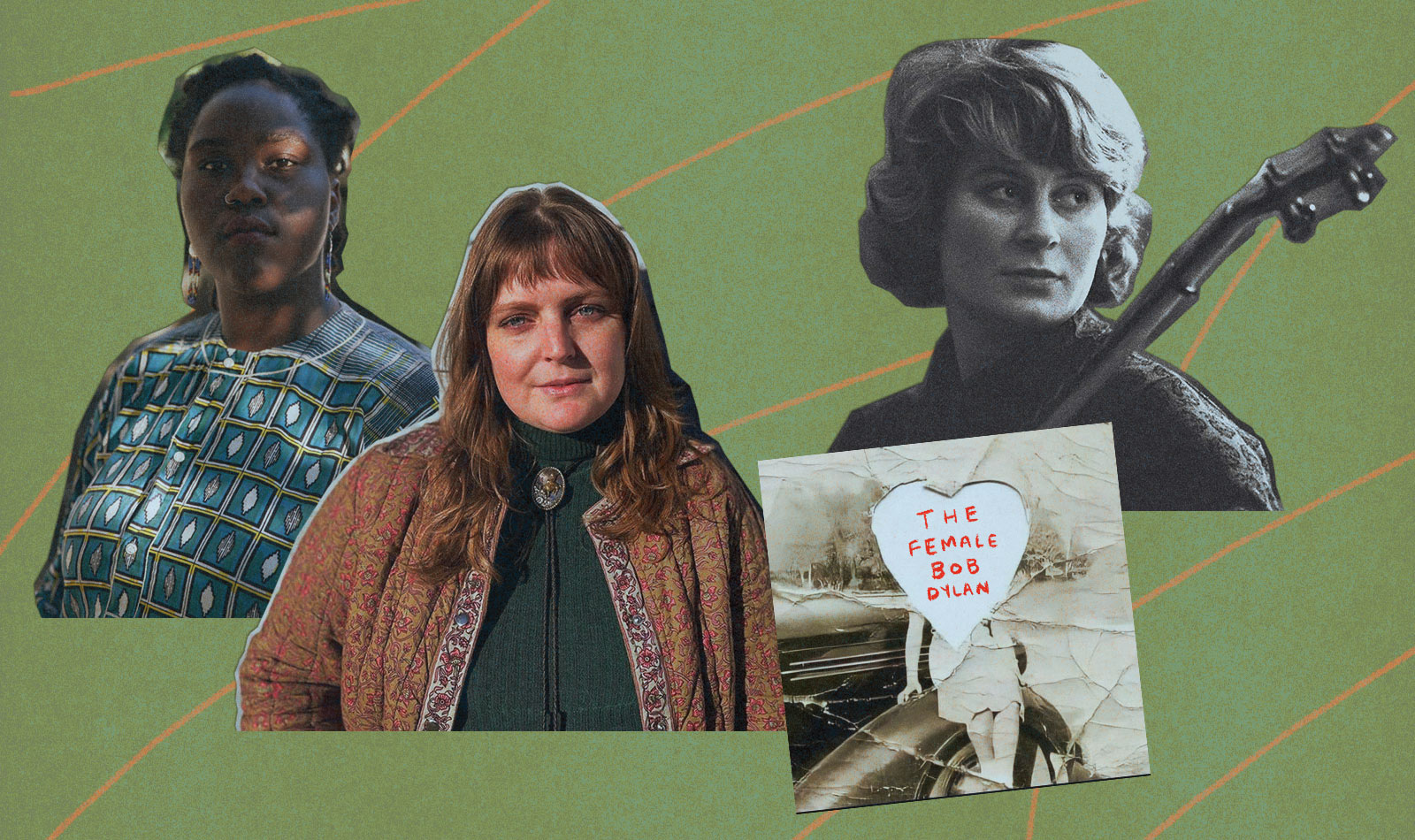
How many times have you come across a 20th century female musician of the singer-songwriter variety unironically described as “the female Bob Dylan”? My guess: a far greater number of times than there are Bob Dylans, let alone “female versions” of him, whatever that means.
Figuring out what that means is the impetus behind The Female Bob Dylan, a new podcast hosted by researcher and producer Sophie Abramowitz; artist and musician Sarah Bachman; and folklorist, writer, and radical feminist record label SPINSTER co-owner Emily Hilliard. Each episode is devoted to “telling stories of women musicians, particularly those who have not been celebrated or who have left the music industry for various reasons,” says Hilliard.
The hosts, longtime friends and music people, had been considering doing a podcast together for a while; it was coming across the descriptor “the female Bob Dylan” in relation to a new biography of songwriter and political radical Connie Converse—arguably as well-known for disappearing without a trace in the mid-’70s as for the haunted and haunting music she recorded two decades prior—that was both the last straw and final push. ”All of us kind of paused,” says Abramowitz. “We were like, ‘Why? What does she have to do with that?’ That question sort of unfurled a whole way of approaching this project.”
Starting with a discussion of Converse, every episode is centered around a songwriter who has at some point been described as “the female Bob Dylan.” In a friendly and conversational atmosphere, Abramowitz, Bachman, and Hilliard relate stories about the artist’s life and music, and tap resources like the artist’s own memoirs or the expertise of fellow academics and musicians to really dig into the work on its own terms—an approach often denied female musicians due to cultural bias and sexism. “We’re really interested in trying to work with the language and thoughts of these women as they’ve expressed themselves in books and in music, we’re interested in really thinking about how they sound,” says Abramowitz. “This is something that we feel is missing from a lot of narratives about these women.”
Recent subjects include Vashti Bunyan, Joan Baez, and Joni Mitchell, each episode offering a reframing of the narrative around these women: the baggage associated with being a “confessional songwriter” in regards to Mitchell, how Bunyan’s rejection of the folk label in her youth led to a late-in-life career revival, and more. Future episodes are planned for Odetta, Norma Tanega, and Shirley Collins. Even Dylan himself has gotten some shine: In the podcast’s second episode, American folk musician Jake Xerxes Fussell joins the women to speak about the meaning of Dylan as a cultural icon distinct from Dylan the artist or Dylan the man.
While the music so far has tended folk, there’s no reason the podcast will stay in that idiom. As Bachman points out, the influence of the mid-20th century folk music explosion was felt in nearly all styles of popular music. “There’s the traditionalists, there are the people writing their own music, there’s the pop people, there’s the people who have one foot in the girl group scene, there are the ones who are becoming rock ‘n’ roll. There’s blues and jazz and funk. All of these people are constellating this moment and a lot of them haven’t had a spotlight. And the ones who have, we’re excited to approach in a slightly different way.”
Below the hosts of The Female Bob Dylan podcast share a list of Bandcamp listening recommendations, ranging from foundational folk albums to modern avant-garde classics from friends and colleagues.
Sophie Abramowitz’s Picks
Mal Devisa
“A friend living part-time in Northampton sent me this album earlier this summer and I haven’t pulled myself out of it yet. Mal Devisa sings and plays bass, a JD-Xi keyboard, and a loop pedal on 99 short tracks that she composed and released herself. Each is a vivid and textural little world. All together, it’s a site of ir/reconciliation that asks as much as it offers. Totally brilliant.”
Dorothy Carter
“Dorothy Carter‘s 1978 opus. Transcendental folk meets Appalachian psych meets ethereal bard-core. Expansive, peripatetic, gorgeous.”
Mabe Fratti
“Cellist, composer, and singer Mabe Fratti‘s latest—an experimental album that defies inevitability even as it moves in and out of these satisfying, churning grooves. A searching, spooky, irresistible record.”
Lou Turner
“Admittedly this one is in the family: Emily released Microcosmos on SPINSTER, Sarah did the cover illustration, and Lou [Turner] also does our podcast theme song. But I love this beautiful record. It’s like if a Western movie filmed tomorrow plunged into the abyss.”
Sarah Bachman’s Picks
Myriam Gendron
“I just love all of her records, they are breathtaking. This is her latest on Feeding Tube Records, but all Myriam Gendron records are really kind of different. On her first album, she was putting the poetry of Dorothy Parker to her acoustic finger-picking. It’s lovely. On her second album, she does popular songs from Canada and the United States, some of the biggest hits like ‘Go Away From My Window,’ and that kind of thing. This one is original. She wrote some of [the songs], and they’re really great. This is perfect music for wandering in any season.”
Magic Tuber Stringband
“Magic Tuber Stringband are a trio out of—right now, they’re in Georgia, but they’re moving. They kind of live the lifestyle, moving around the East Coast a little bit. They are in the folk idiom, but they’re stepping away from traditional music in a lot of ways. What they do is a lot of improvisation. Courtney Werner is the fiddle player. She’s one of the most creative, brilliant musicians that I have ever met. I think she’s remarkable. All of their sets are acoustic, but they’re doing pump organ and bellows and big, cool improvisations. I love them.”
Shirley Collins
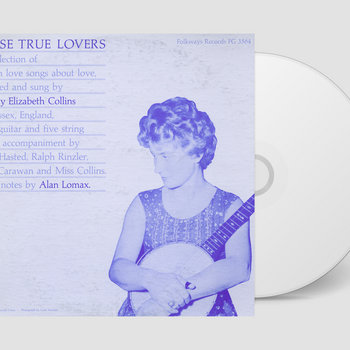 . 00:10 / 00:58
. 00:10 / 00:58
“I was just really stoked that this was on Bandcamp. I mean, her 1959 album is foundational—absolutely a required album if you like this type of folk music.”
Emily Hilliard’s Picks
Natalia Beylis
Variations on a Sewing Machine
 . 00:10 / 00:58
. 00:10 / 00:58
“I’ve long had a fascination with the musicality of the sounds of everyday life, specifically in domestic space. I explored this interest with a group of women friends in a ‘domestic noise band’ called HOME ITEMS when I was in my early 20s and living in Vermont. We played blenders, button jars, and other kitchen utensils as instruments. Later, on SPINSTER’s recent compilation, Measure, Pour & Mixtape, we asked other artists to engage with the sonic quality of food and the soundscape of the kitchen. I’m also obsessed with ‘waulking songs,’ Gaelic work songs traditionally sung by groups of women as they ‘waulk’ tweed—rhythmically beating it against a table so that the fiber relaxes and the wool slightly felts.
“Knowing of my interest in these types of sonic connections and explorations, Marisa Anderson recently sent me this album by soundscape artist Natalia Beylis, in which she plays a sewing machine run through a looper pedal. The tracks can be dark and droning, rhythmic and grooving (like the ways I often feel when I sew). It’s also notable that the machine caught fire while recording, which is very punk rock.”
Cath and Phil Tyler
“Cath and Phil Tyler are some of the best on the contemporary British psych-folk scene. Their interpretations of traditional songs are beautifully rendered with lovely fingerstyle guitar, banjo, and occasional weirder elements, like the jaw harp at the end of ‘Two Sisters/A Fisherman’s Song for Attracting Seals.’ Their voices are unadorned and true and the way they sound together hits that perfect balance of transcendent and earth-bound. This is just what I want to listen to as the summer turns to fall.”
Fawn Wood
“Fawn Wood is a Cree/Salish musician from Alberta, Canada. I first learned of her from the other SPINSTER co-founders, who shared Kikāwiynaw with me. The timbre of Wood’s voice is just so out of this world. The title of the album translates as ‘our mother’ and you can hear that matriarchal, familial element in the drones, accompaniment, and women’s call and response elements on this exquisite record.”
Norma Tanega
I’m the Sky: Studio and Demo Recordings, 1964-1971
“Norma Tanega (1939–2018) was a musician and visual artist of Panamanian and Filipino descent from Claremont, California. She had early success as a pop and folk singer-songwriter, namely with the hit ‘Walking My Cat Named Dog’ (and you may know her song ‘You’re Dead’ from the movie/show What We Do in the Shadows). Tangea landed in Greenwich Village in 1963 and was part of the folk revival there, and later moved to London to be with her then-girlfriend Dusty Springfield. Tanega’s songs can be intimate and poignant, funny and wry, or big and celebratory and psychedelic—she has such great range. Later in life she moved from guitar to percussion as her main instrument and branched out into more experimental music, like in her work with Brian Ransom’s Ceramic Ensemble, which played sculpted, earthenware instruments, and other groups (some of which I’ve heard and some of which I want to hear!). I’m so grateful for this Anthology double LP of her early recordings, which includes an expanded booklet with liner notes by Erin Osmon. Tanega is someone we’re excited to talk about on The Female Bob Dylan at some point.”


